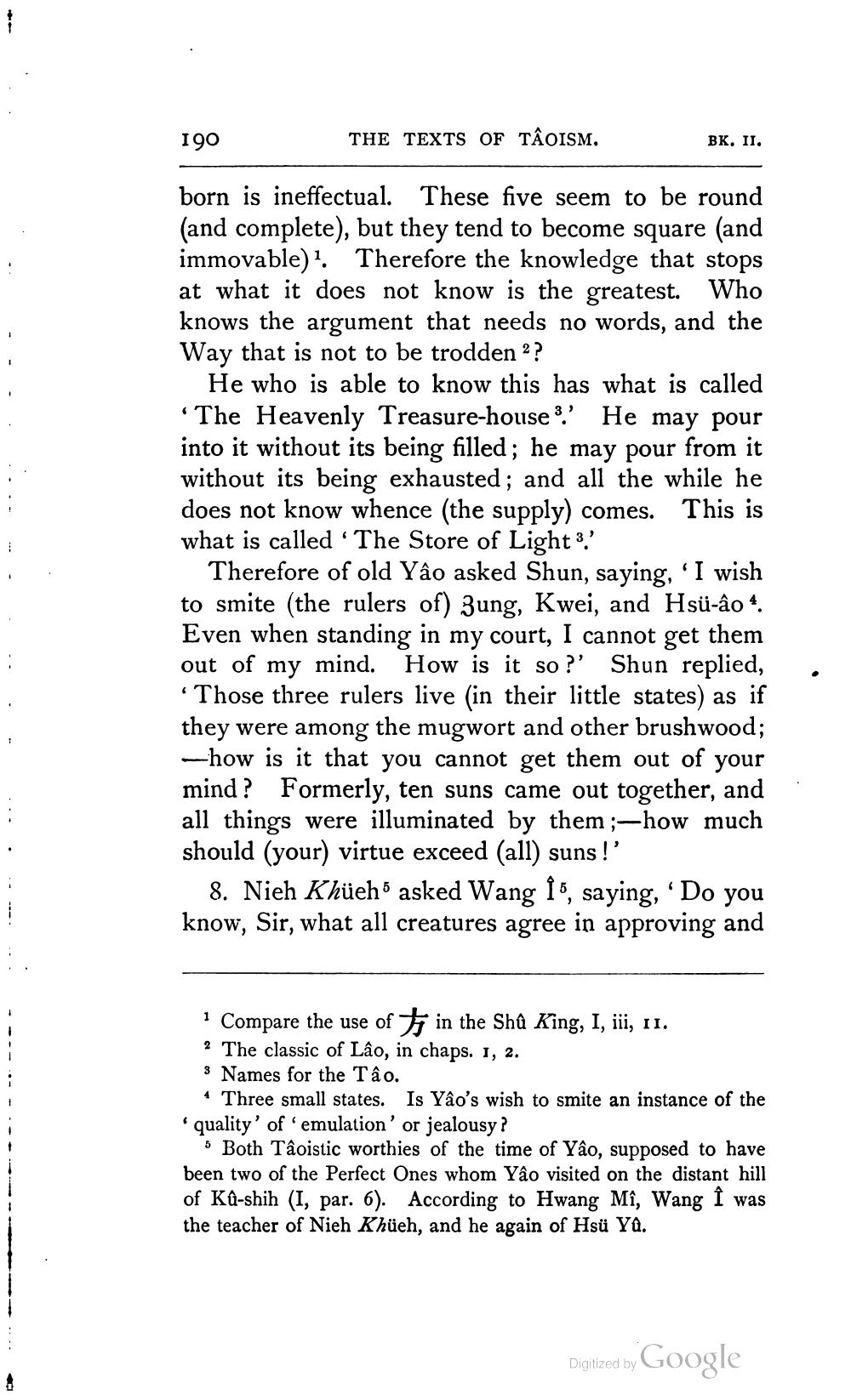________________
190
THE TEXTS OF TÂOISM.
BK, II.
born is ineffectual. These five seem to be round (and complete), but they tend to become square (and immovable). Therefore the knowledge that stops at what it does not know is the greatest. Who knows the argument that needs no words, and the Way that is not to be trodden 2?
He who is able to know this has what is called “The Heavenly Treasure-house?' He may pour into it without its being filled; he may pour from it without its being exhausted; and all the while he does not know whence (the supply) comes. This is what is called 'The Store of Light 3.'
Therefore of old Yâo asked Shun, saying, 'I wish to smite (the rulers of) Zung, Kwei, and Hsü-âo 4. Even when standing in my court, I cannot get them out of my mind. How is it so ?' Shun replied, 'Those three rulers live in their little states) as if they were among the mugwort and other brushwood; -how is it that you cannot get them out of your mind? Formerly, ten suns came out together, and all things were illuminated by them ;-how much should (your) virtue exceed (all) suns!'
8. Nieh Khüeho asked Wang 15, saying, 'Do you know, Sir, what all creatures agree in approving and
Compare the use of in the Shû King, I, iii, 11. 2 The classic of Lâo, in chaps. 1, 2. 3 Names for the Tâo. 4 Three small states. Is Yâo's wish to smite an instance of the quality' of 'emulation' or jealousy?
5 Both Taoistic worthies of the time of Yâo, supposed to have been two of the Perfect Ones whom Yâo visited on the distant hill of Kû-shih (I, par. 6). According to Hwang Mî, Wang I was the teacher of Nieh Khüeh, and he again of Hsü Yu.
Digitized by Google




